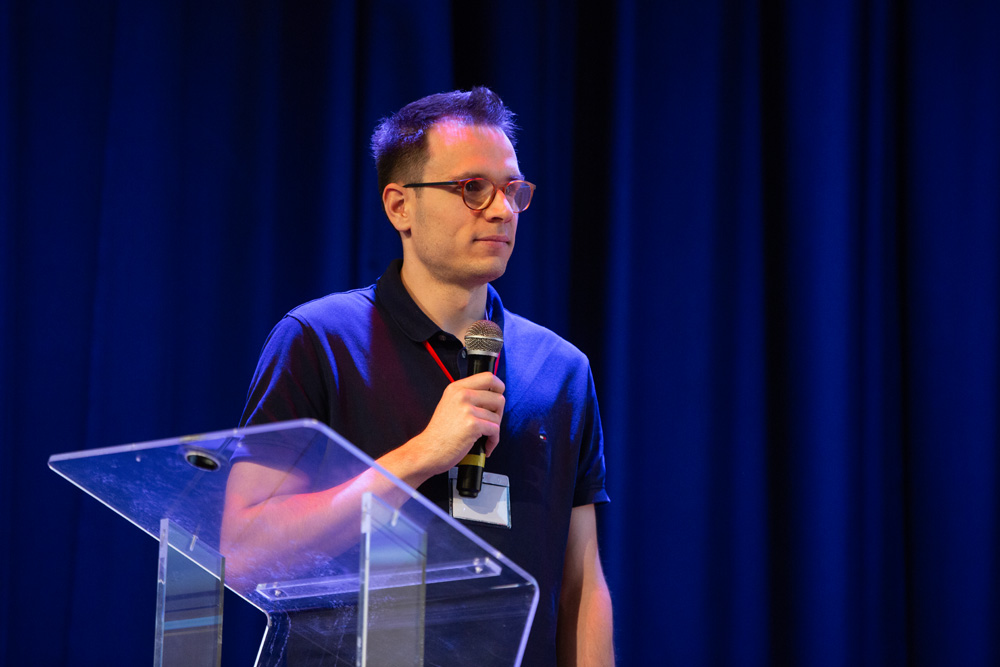HPuzzLC : enhancing HPLC proficiency in sterile compounding units by implementing a serious game-based training approach
3 October 2024
F. Kerouredan1, M. Sangnier1, J-M. Bernadou1, A. Berroneau1, G. Bouguéon1,21 Unité de Pharmacotechnie, Centre Hospitalier Universitaire de Bordeaux, France
2 ARNA Laboratoire ChemBioPharm U1212 INSERM - UMR 5320 CNRS, Université de Bordeaux, France
Context
The analytical control of sterile injectable preparations by HPLC is a method of choice to ensure safety within sterile reconstitution units. Handling this complex tool in a continuous flow release context requires training and enabling users. In a companionship context, the aim was to develop an engaging and playful training, in the form of a serious game for pharmacy interns in charge of analytical control.
Materials and Methods
The training consists of a first part in the form of interactive and immersive Prezi® content of five modules, including theoretical and practical knowledge on the internal unit process flow. Then, the player takes an evaluation in the form of a double-sided card game. Two sets of 6 cards are randomly chosen from 5 sets (30 different cards in total). The player answers a question asked on the front of each card, evaluating the knowledge acquired with the interactive training and the companionship. They then reassemble a puzzle representing an analysis scenario (spectrum, chromatogram, programming) with the back of the cards to which they have given the correct answer. The player indicates to the evaluator the key elements to be analyzed in order to make the decision to release, and finally decides whether or not to release the analysis. A score out of 30 points is given: 0-20 not validated ; 20-25 validation with continuation of the companionship; 25-30 total autonomy. A satisfaction questionnaire is then filled in.
Results/Discussion
13 people participated ; average score of 27/30 [21-30]. The scores obtained on the initial questions were 10.4/12 [7-12]. The key elements of the puzzle to be analyzed were reported with an average of 11.2/12 [9-12]. 12 people made the right decision at the release step (average 5,4/6). As expected, a correlation between the level of experience (beginner n=4, intermediate n=3, advanced n=6) and the level of response was observed. The average time to enable was 19 min [17-28]. All people were thus enabled, showing the effectiveness of the companionship and the training, especially for beginners.
The card game format was widely appreciated (evolving and challenging aspect) by all players. 12 people confirmed their total autonomy in routine, but 7 requested additional support time. 9 players already had prior training, which may explain the relatively high scores. It appears to be of interest to add another card game (e.g. 3), or even to practice regularly in a collectively oriented way, doing a regular review of cards and scenarios for experience sharing.
Conclusion
HPuzzLC is an enabling training, bringing playful, interactive and modular aspects, suitable for HPLC users in routine. It was designed to be easily transposable to other centers and activities, adapting to their needs. Some points for improvement previously highlighted will be implemented, and a new evaluation at 3 months will be carried out in order to evaluate its long-term effects.
